The Godfather – A Film Analysis
At the start of The Godfather: Part II (directed by Francis Ford Coppola), we see a grim exchange between a corrupt politician and the head of a Sicilian Mafia family. The politician, a reputed senator, denies the Mafia Don’s request for a Vegas gambling license, saying: “I despise your masquerade, the dishonest way you pose yourself.” The Mafia Don, Michael Corleone (portrayed by Al Pacino), replies: “We’re both part of the same hypocrisy, senator.”
When we see our current socio-political climate (“current” meaning the whole of our lifetime) it is fair to conclude that Mario Puzo’s The Godfather speaks volumes about the rampant hypocrisy running deep in our society. What is hypocrisy? The Greek hypokrisis is closely connected to envy and theatrics. A common subject for the theater in ancient times was, no doubt, mythology.
The Godfather saga can be considered a modern myth—a continuation of the drama of the Greek gods—albeit with a post-Calvary dynamic. In ancient Greece, Zeus was considered the king of the gods and, therefore, the most worthy of worship. Hades, the god of the underworld, on the other hand, is mostly avoided out of fear by the masses. Zeus is the popular face of the gods, the representation of the light: the kind of savior for which people yearn. Hades is the representation of the things that, socially, are best left unsaid.
What’s best left unsaid is the mirroring of the two forces and the source of evil. The rule of Zeus is publicized—presentable. The rule of Hades is an open secret—an incrimination of Zeus. Both rule via murder, coercion, and persecution. This order of mythology is channeled in the Godfather saga. Don Vito Corleone (portrayed by Marlon Brando), Michael’s father and mentor, recognizes this and refers to the politicians, clergy, lawyers, doctors, and professors as pezzonovante: “big shots.”
It is worthwhile to observe the developing relationship between Vito Corleone and the pezzonovante. In his novel, Mario Puzo sketches a history of the Corleone family that is very much grounded in reality. Vito Corleone ascends the underworld by running bootlegging operations during the Prohibition era. During that time, he becomes enormously powerful. The politicians and lawyers see a valuable use for him seeing how black market operations can be beneficial to them. Likewise, Don Corleone pockets these respectable public faces for his own endeavors.
The modern-day relationship between Zeus and Hades is a sophisticated version of the ancient myths. Both employ violence to achieve their ends; both do so in a manner of mutual understanding. This is made all the more obvious when we notice how the Mafia structure works. The Don is at the top of the hierarchy followed by the consigliere (counselor), the caporegimes (commanders), and then the “button men,” the foot soldiers. The Don never gives an order directly to the soldier; it always comes down through the hierarchy.
The structure of our modern-day governments is more or less the same. Why are the hierarchies like this? It is precisely due to the fact that both seek to hide the source of the violence under anonymity. Thus, the sacredness of the structures is maintained. Mario Puzo hammers this point home in an interaction between Michael and his future wife Kay (portrayed by Diane Keaton).
Michael: “My father is no different than any powerful man, any man with power, like a president or senator.”
Kay: “Do you know how naive you sound, Michael? Presidents and senators don’t have men killed.”
Michael: “Oh. Who’s being naive, Kay?”
Michael’s story is a tragedy for this very reason. He, like his father, has recognized the truth but he is trapped inside it like a bird in a cage. In the beginning of the story, he is, like Kay and most of us, naive about the power structures of society. In defiance of his father, he enlists in the marines and goes off to war. He comes back a war hero and chooses to marry an American girl to further his rebellion.
The scales fall away from his eyes, however, when a mob hit on his father’s life fails. In the hospital, as he races to save his wounded father from another hit, Michael realizes how corrupt the police can be, who are bought off by rival gang lords. This realization, that the life of a pezzonovante means the life of a puppet, leads to Michael killing a police captain and thus cementing his entrance into the underworld.
Things grow much bleaker over the span of two films, as we see Michael’s violent actions coming back to haunt him. With the death of his father, Michael grows more sinister and isolated after witnessing betrayal after betrayal; he trusts no one. The violence which he must employ to keep the wolves away ultimately spills into his family in unspeakable ways.
It is here that Mario Puzo’s Catholic sensibilities are noticeable. When Michael’s wife willingly commits an abortion, it is made certain to us through Kay’s very own words that her abortion is an “abomination” done to stop another child from entering Hades’ underworld of violence and death. Also, Michael’s own brother Fredo betrays him. All of this culminates in Michael having his brother assassinated; it is an event that would haunt him for the remainder of his life.
Puzo does not mythologize Hades. He certainly romanticizes some characters to a degree but never beyond belief. What Puzo does with Michael’s character is humanize him and make him relatable. How on earth can we relate to a cold and calculating Mafia boss? For this, we will come again to the mirroring of the two hierarchies.
The Mafia structure which Puzo writes about is centuries old, built on the traditional system of the old mythologies. In our world, we might be inclined to think that our nation’s leaders are the political equivalent to the Mafia Dons. But when we look closely, we will see that the leaders are mere “button men.” After all, the leaders are elected and brought into office by popular consensus.
Who then are the Mafia Dons in our midst? The answer: whoever that wishes to hide within the anonymity of the crowd and have others carry out their dark fantasies. Think of a “respectable” person who threatens his/her neighbor by calling the police when something unruly occurs. This tiny illustration should be sufficient to convict us. It also tells us why the ancient Mafia system has died out. The Mafia has died out because we—the average citizens—have chosen to be the replacement. It is no coincidence that Mario Puzo chooses to tell the tale of Hades in a manner of realism and from the perspective of a mortal.
The violence that haunts the Corleones is symbolic of the unrest and decline in moral values that grips a society when it decides to play God. When a society decides to take the role of a democratic judge, jury, and executioner, and by proxy eliminates all those who are non-violent yet disorderly and non-conforming, that society short circuits because the Calvary event does not allow for anonymity to last.
In the last scene of the Godfather: Part II, we see Michael Corleone seated all alone in contemplation. He has become the most powerful man in the underworld but there is no joy in his triumph. How can he celebrate when he sees very clearly the bones of his very own brother, among the others whom he has murdered, as the foundation of his empire? We are left with only one thing: the fate that waits for us if we continue down the same path of hypocrisy.

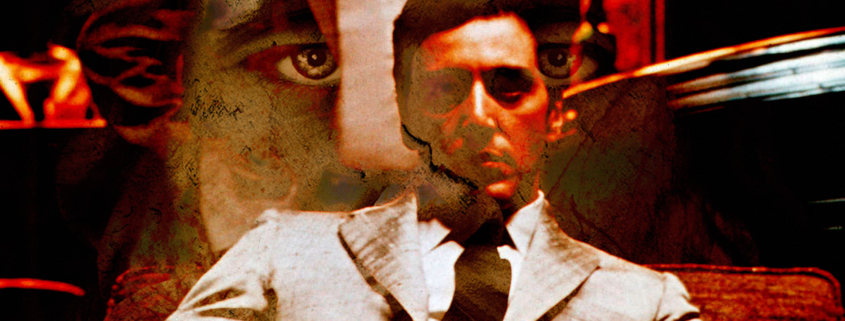
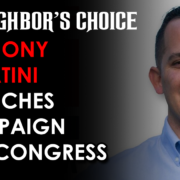
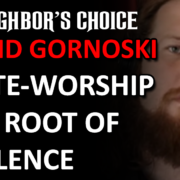
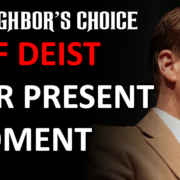
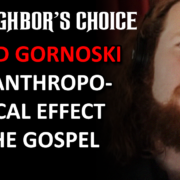

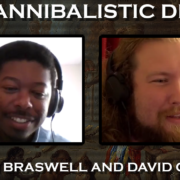
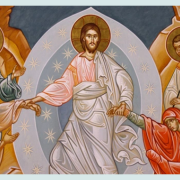
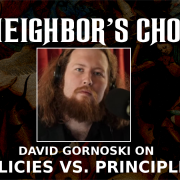


Leave a Reply
Want to join the discussion?Feel free to contribute!